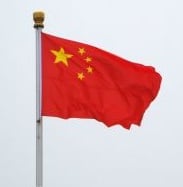China's cabinet leadership State Council has said it wants to move intellectual property faster out of its elite research centers into commercial realms that allow developers to cash in, a move that fits with a rush of cash into biopharma plays that has captured attention.
That effort has been underway to some degree in China for years. But recent efforts such as Shanghai-based ZAI Lab working with Beijing-based Tsinghua University in setting up a dedicated R&D center point to ways such cooperation might work while the industry grows in sophistication and funding.
Three State Council statements released this week said that first of all the move to develop basic research into commercial applications fits in with current economic restructuring efforts, citing a decision to relax rule on transfer of scientific and technology research.
"The decision, which is aimed at accelerating the process of turning scientific findings into productivity and advancing China's scientific innovation, has huge significance for promoting China's supply-side structural reform," the first statement released Feb. 18 said, citing experts and officials.
A second statement on the same day said in that vein, in the works are profit-sharing regulations that would let lead researchers and the management of state-run institutions participate in any commercialization, while noting that should be "an open and transparent mechanism regarding the leaders' profits should be established to prevent loss of State-owned assets."
And finally, a third statement also on the same day went a bit further on how the government plans to go about commercialization.
"First, national research institutes and universities will have the right to sell their research findings to enterprises without national-level approval," the statement said, adding that "all profits earned through the sales will go to research producers."
The statement said also that "at least 50% of such sales will go to researchers, who will eventually be allowed to work with the enterprises that buy their research findings for a maximum of three years. They will retain their positions on research bodies to help the enterprises to better implement research achievements."
The statements come as the ability of biotech and pharma companies in China to raise money stands out in volatile global markets and also highlights China-focused firms in the space.
The Financial Times this week wrapped recent cash plays among leading China-based, or China-focused, biotech and drug firms and went as far to suggest a quickly emerging rival to Europe and the U.S. in the ability to develop "blockbuster medicines."
The names included Beijing-based BeiGene ($BGNE), fresh off a successful initial public offering of $158.4 million on the Nasdaq, though shares have wobbled since with the market.
But still for its relatively early-stage pipeline of four candidates in clinical development, not to be sneezed at.
Tipped to also list on the Nasdaq is Hong Kong-based Hutchison China MediTech, or Chi-Med, with plans to raise at least $100 million.
The U.K.-listed firm backed by Hong Kong's wealthiest investor, Li Ka-shing has a pipeline of seven candidates, focused as well on oncology with one, fruquintinib, part of an Eli Lilly ($LLY) partnership likely to put the drug before the China FDA for approval this year, which would be a milestone for Mainland China oncology drug development.
Also cited was California-based Cellular Biomedicine Group ($CBMG), which is in the CAR-T and manufacturing space with trials in China as well as the previously mentioned ZAI Lab.
To be sure, as the FT and others note, the last drug China developed for global sales was traditional Chinese medicine offshoot artemisinin to treat malaria in the 1970s.
The researcher, Tu Youyou, won the Nobel Prize in physiology or medicine last year, and is said to be working on the same compound for a possible lupus treatment.
At the same time at least two bread-and-butter pharma companies in China, Nanjing-based Simcere Pharmaceutical Group and Beijing-based China Resources Pharmaceutical Group, are looking to raise as much as $1 billion on the Hong Kong Stock Exchange.
All of the activity has highlighted the mix of returnees to China, dubbed sea turtles as the FT notes, in the biopharma space who often gained experience at U.S. companies and universities. That has shown in more rigorous academic work in China that gets increasingly published in leading journals.
Multinational firms are unlikely to miss the boat and in nearly all cases in the biotech arena are part of development deals. One industry executive in the space however estimates there are now about 80 biotechs in China that run from friends and family to venture capital sources, and they are being eyed for potential.
"Like anywhere else, most will crash," the industry executive said. "But it is an exciting time no doubt."
- here's the story from the FT
- and the State Council statement on research rules
- and the State Council statement on commercialization of research
- and State Council release on national research institutions and enterprises